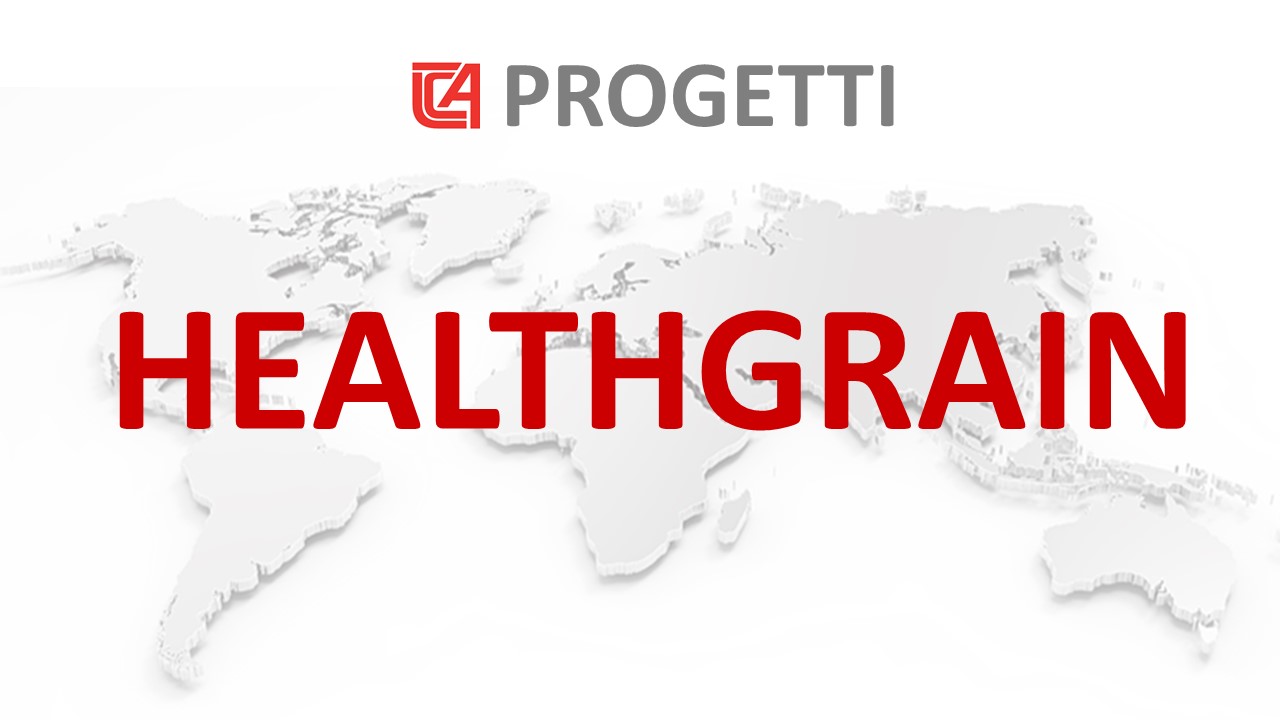Exploiting bioactivity of European Cereal Grains for improved nutrition and health benefits (IP – 514008)
Strategic objectives addressed
The HEALTHGRAIN Integrated Project aims at improving the well-being, and reducing the risk of diseases related to the metabolic syndrome among European consumers by increasing their intake of novel whole grain products. The strategic objective is to exploit European grain, and/or new cereal-derived ingredients in the development of tailored products with improved health benefits. This will be achieved by an innovative combination of improved grain raw materials and novel processing methods, based on the acquisition of new knowledge regarding mechanisms responsible for health benefits of whole grain diets.
Proposal abstract
The HEALTHGRAIN Integrated Project aims to improve the well-being and reduce the risk of metabolic syndrome related diseases in Europe by increasing the intake of protective compounds in whole grains or their fractions. The aim is to produce health promoting and safe cereal foods and ingredients of high eating quality. A whole grain diet is increasingly demonstrated to be protective against development of diet related disorders such as cardiovascular disease and type 2 diabetes. HEALTHGRAIN will carry out an integrated, multidisciplinary effort to establish the variation, process-induced changes and human metabolism of bioactive compounds in the major European bread grains, and to reveal the physiological mechanisms underlying their significance in prevention of metabolic syndrome and related diseases. The target bioactive compounds are vitamins (folate, tocols, choline etc.), phytochemicals (lignans, sterols, alkylresorcinols, phenolic acids) and indigestible carbohydrates. Also other product characteristics that may add to the metabolic benefits of whole grain products are promoted. The research is carried out in five research modules: Consumer research: Studies in four European countries are made to understand consumer expectations of healthy cereal foods, and to give basis for dissemination practises. Grain improvement and biotechnology toolkit: Plant biotechnology, including “omics technologies”, is used to identify and generate new sources of nutritionally enhanced grain and to provide a “biotechnology toolkit” for plant breeding programmes. Technology and processing: New fractionation and bioprocessing methods are developed to allow for incorporation of more of the whole grains and their outer parts in consumer foods with sensory quality appealing to European consumers. Nutrition and metabolism: Bioavailability of bioactive compounds is determined, and their role as well as that of glycemic properties of cereal foods in reducing metabolic risk factors is established. Dissemination and technology transfer: An education, training and dissemination element communicates the technology tools and know-how about healthy cereal foods to European grain processing industry and health professionals.
Partner di progetto
PROJECT CO-ORDINATOR: VTT – Technical Research Centre of Finland (Finland)
- – ABI – AgroBioInstitute (Bulgaria)
- – ANET – ANET New Media Solutions (Austria)
- – BARILLA – Barilla G.e R. Fratelli (Italy)
- – BFEL – Bundesforschungsanstalt fà¼r Ernà¤hrung u. Lebensmittel (Germany)
- – BOKU – University of Natural Resources and Applied Life Sciences Vienna (Austria)
- – Branscan – Branscan Limited (United Kingdom)
- – BUEHLER – Bà¼hler AG (Switzerland)
- – BUTE – Budapest University of Technology and Economics (Hungary)
- – CerChem – Cereal Chemistry Equipment CVBA (Belgium)
- – DIAS – The Danish Institute of Agricultural Sciences (Denmark)
- – DPRNUT – DPRNutrition Ltd (United Kingdom)
- – DTU – The Technical University of Denmark (Denmark)
- – ICC – International Association for Cereal Science and Technology (Austria)
- – IFR – Institute of Food Research (United Kingdom)
- – IGV – Institut fà¼r Getreideverarbeitung GmbH (Germany)
- – IHAR – Institute of Plant Breeding and Acclimatization (Poland)
- – INRA – Institut National de la Recherche Agronomique (France)
- – INRAN – Instituto Nazionale di Ricerca per gli Alimenti e la Nutrizione (Italy)
- – KULeuven – KULeuven – Katholieke Universiteit Leuven (Belgium)
- – KVL – The Royal Veterinary and Agricultural University (Denmark)
- – LU – Lund University (Sweden)
- – MRIN – Università© de Droit, d’Economie et des Sciences d’Aix-Marseille III (France)
- – MV – Agricultural Research Institute of the Hungarian Academy of Sciences (Hungary)
- – OeDT – à–resund Diabetes Team AB (Sweden)
- – PGZP – Productschap Granen, Zaden en Peulvruchten (Netherlands)
- – PURA – Puracor NV (Belgium)
- – Raisio – Raisio Oyj (Finland)
- – RRes – Rothamsted Research Limited (United Kingdom)
- – SLU – Swedish University of Agricultural Sciences (Sweden)
- – SNF – SNF Swedish Nutrition Foundation (Sweden)
- – T&L – Tate & Lyle (Belgium)
- – TCA – Tecnoalimenti S.C.p.A. (Italy)
- – TNO – Netherlands Organisation for Applied Scientific Research (Netherlands)
- – UCC – University College Cork – National University of Ireland (Ireland)
- – UHDACM – University of Helsinki (Finland)
- – UKU – University of Kuopio (Finland)
- – UM – Maastricht University (Netherlands)
- – UniNa – Federico II University of Naples (Italy)
- – UniS – University of Surrey (United Kingdom)
- – UniTus – Università¡ degli Studi della Tuscia (Italy)
- – UU – University of Ulster (United Kingdom)
- – WU – Wageningen University (Netherlands)



